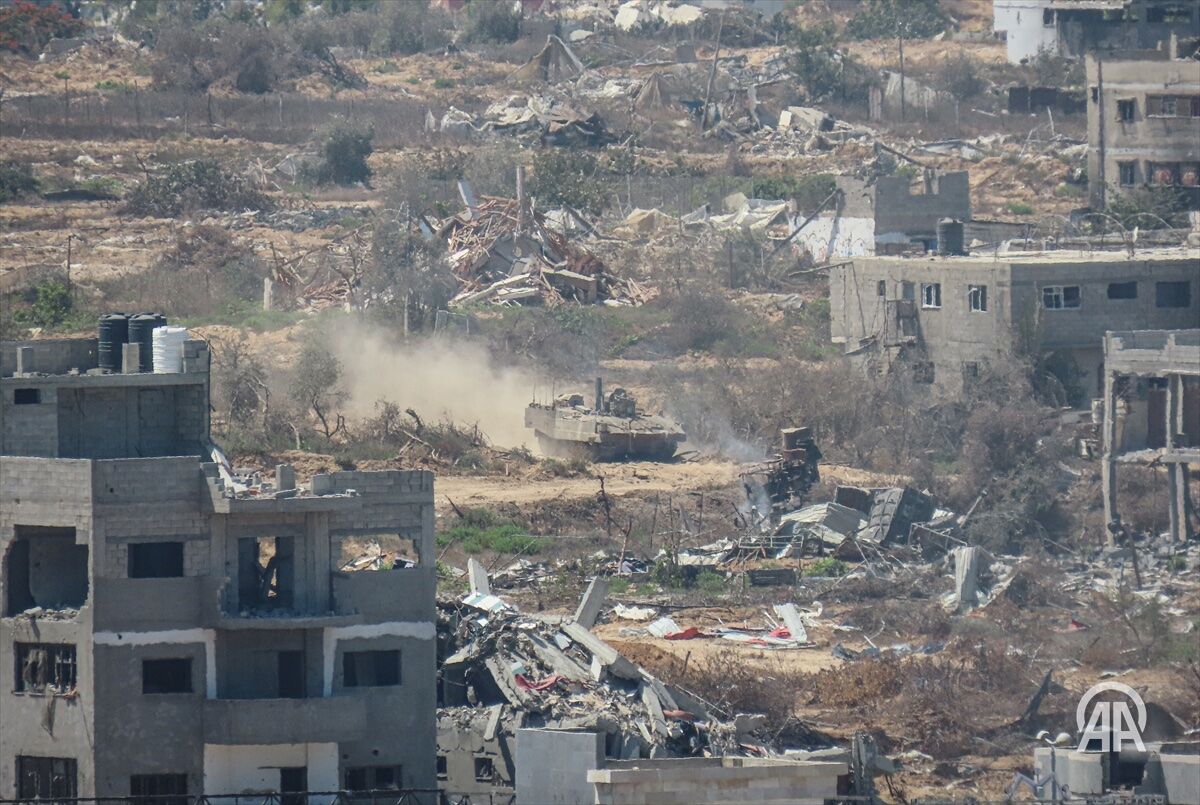
Many of the European countries continue to supply Israel with arms and weapons as it continues its military offensive on the Gaza Strip and in spite of the world accusation that Tel Aviv is committing genocide against the Palestinians.
Some European countries are top military suppliers, others are at the tail end but it is interesting to know that the great majority of European states sell weapons to Israel, its called the arms trade of Europe.
Anadolu compiled details of the European military sales to Israel since the outbreak of the war on Gaza after 7 October, 2023.
France, Italy and Germany, along with the United States have accounted for 81% of the Middle East’s arms imports between 2019 and 2023, according to the Stockholm International Peace Research Institute (SIPRI).
Israel’s military spending spiked by 24% to $27.5 billion following its attacks on Gaza. It became the second-largest arms spender in the Middle East.
From 2014 to 2022, the European Union granted export licenses to Israel worth about €6.3 billion ($6.8 billion).
These weapons are suspected to have contributed to the deaths of more than 38,000 civilians in Gaza, including 10,000 women and more than 15,000 children, the Turkish news agency states.
Although some EU countries, including Belgium, Italy, the Netherlands and Spain, decided to halt arms sales to Israel, press reports maintain this trade has somehow continued.
Key European arms suppliers
Germany remains Israel’s largest European arms supplier, providing about 30% of Israel’s imports between 2019 and 2023. In 2023. This is whilst German arms deliveries to Israel increased tenfold to €326.5 million and peaking after 7 October.
Most of France’s arms exports in 2019-2023 went to Middle East states accounting for 34% of the total French exports. Paris is known to provide parts for Israel’s missile defense system, known as the Iron Dome.
Despite laws restricting arms sales to human rights violators, Italy sold €2.1 million worth of weapons to Israel in the last quarter of 2023. Italian Defense Minister Guido Crosetto claimed there have been no new arms transfers to Israel since 7 October, although there are reports of ongoing sales by companies such as Leonardo. Italy’s export licenses to Israel between 2014 and 2022, including for warships, small arms, artillery, aircraft and ammunition, worth €114 million.
The UK issued more than £448 million ($576 million) in arms licenses to Israel since 2015. In addition, 15% of the materials used in the production of the F-35 fighter jets purchased by Israel since 2016 are supplied by British companies, according to the London-based charity Action on Armed Violence.
Spain has not reported any arms sales to Israel since 7 October, but data from November 2023 shows a transfer of ammunition worth €987,000. Between 2014 and 2022, Spain issued export licenses worth €99 million, including for ammunition and military vehicles.
Other European suppliers
The Netherlands issued €19 million in export licenses to Israel between 2014-2022, peaking at €10 million in 2022 alone. A court ruling in the country in 2024 halted exports of F-35 parts to Israel, citing the risk of violations of humanitarian law.
Despite halting arms sales, Belgium transferred €46 million in arms to Israel between 2014 and 2022, including explosives and aircraft parts.
Portugal issued more than €12.5 million in export licenses to Israel, most of it for aircraft-related materials.
Austria’s arms licenses to Israel totaled €33 million, Slovakia’s €117 million, and the Czech Republic’s arms exports totaled €127 million from 2014-2022, with recent deliveries of ballistic vests and military equipment.
Hungary’s sales exceeded €15 million, with notable contracts for the production of drones involving Israeli and German companies.
Poland’s €4.9 million in arms exports to Israel, Slovenia’s €6.1 million and Romania’s €427 million included aircraft, military vehicles and ammunition transfers.
Bulgaria’s €49 million in arms included explosives and light weapons.
Serbia’s state-owned Yugoimport-SDPR reported €14 million in arms exports to Israel in early 2024.
The total value of the 21 export licenses between Greece and Israel was recorded at €7.6 million.
Nordic, Baltic countries
Sweden issued licenses worth less than €1.3 million for weapon sights and control systems, with a significant contract with Israel’s Elbit Systems worth $170 million in late 2023.
Norwegian companies have reportedly circumvented restrictions prohibiting arms sales to conflict zones through foreign subsidiaries.
Licenses issued from Denmark to Israel are worth more than €1 million, while the issuance of licenses worth €403,000 in 2022 was the largest sale ever between the two countries. The country is facing a lawsuit from a group of non-governmental organizations over arms exports to Israel.
Finland’s €2.4 million in licenses covered electronic equipment, armor and weapon sights.
Latvia’s €5.9 million in licenses peaked at €4.1 million in 2022. Estonia and Lithuania had minimal exports of around €300,000 each, mostly small arms.
Croatia, Luxembourg, Malta, Southern Cyprus
Croatia’s €681,000 in licenses covered armaments and ammunition. Export licenses between Luxembourg and Israel amounted to approximately €671,000, while the total value of Malta’s export licenses to Israel exceeded €17.5 million.
Southern Cyprus’ licenses were worth €97,000, with alleged support for Western military logistics to Israel, the Turkish news agency pointed out.
Israel, flouting a UN Security Council resolution demanding an immediate cease-fire, has faced international condemnation amid its continued brutal offensive on Gaza since an Oct. 7, 2023 attack by the Palestinian group Hamas.







